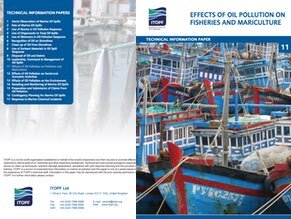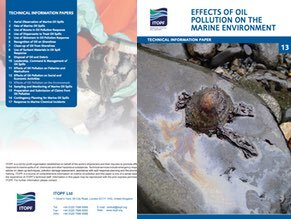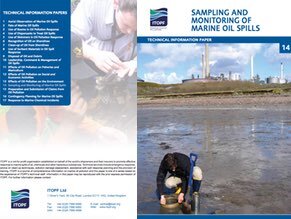Environmental Effects

The effects of oil spills can have wide ranging impacts that are often portrayed by the media as long lasting environmental disasters. Such perceptions are understandable as they are often fuelled by distressing images of oiled birds and other wildlife.
It is true that an oil spill can have severe short term effects, especially when organisms are considered on an individual basis. However, environmental impacts should always be measured in a scientific context and should be appraised at an ecosystem rather than individual level. In other words, it is important (or more representative of long term environmental effects) to base the extent of environmental damage on the effects to ecosystems. For example, has the ecosystem retained its normal functions or how quickly will they resume following an oil spill?
Under normal conditions many of the ecosystems most frequently affected by marine oil spills are accustomed to natural disturbances. For example, shallow coral reefs are some of the most dynamic environments, frequently exposed to the intense forces of typhoons and tsunamis. Disturbances of this nature typically create space for new organisms to settle and grow. In time, natural processes repair damage caused by such events, returning an ecosystem to its previous functions, albeit potentially comprised of different individual organisms. Natural recovery processes are also important in remediating the effects of oil spills. Recovery can be assisted by the removal of oil through well-conducted clean-up operations, and may sometimes be accelerated with carefully planned restoration measures.
How Can Oil Spills Cause Damage to the Environment?
The effects of an oil spill will depend on a variety of factors including, the quantity and type of oil spilled, and how it interacts with the marine environment. Prevailing weather conditions will also influence the oil’s physical characteristics and its behaviour. Other key factors include the biological and ecological attributes of the area; the ecological significance of key species and their sensitivity to oil pollution as well as the time of year. It is important to remember that the clean-up techniques selected will also have a bearing on the environmental effects of a spill.
Oil spills may impact the environment in the following ways:
- Physical smothering of organisms: This is caused by oils with a high viscosity, in other words heavy oils. Smothering will affect an organism’s physical ability to continue critical functions such as respiration, feeding and thermoregulation.
- Chemical toxicity: This is characteristic of lighter chemical components which are more bio-available, ie absorbed into organs, tissues and cells, and can have sub-lethal or lethal toxic effects.
- Ecological changes: This is caused by the loss of key organisms with a specific function in an ecological community. They can be replaced by different species undertaking similar functions in which case the implications for the ecosystem as a whole may not be severe. However, more detrimental is the niche in the community being replaced with organisms performing completely different functions thereby altering the ecosystem dynamics.
- Indirect effects: Loss of shelter or habitat through oiling or clean-up operations.
What Characterises Recovery for the Marine Environment?
Extensive research and detailed post-spill studies have shown that even major oil spills will rarely cause permanent effects.
Marine ecosystems have high natural variability and are subject to ever-changing environmental phenomena such as storms, climatic anomalies (eg El Niño) as well as anthropogenic pressures. Furthermore, marine organisms have varying degrees of natural resilience to these pressures on their habitats. This natural variability means it is unlikely that exact pre-spill conditions will be reached. It makes determining the point of recovery following an oil spill, and the time it will take, difficult to accurately predict.
It is generally accepted that recovery is reached when a community of plants and animals characteristic of that habitat are established and functioning normally.
Explore Documents on Environmental Effects
TIP 11: Petrol Kirliliğinin Balık Yatakları ve Deniz Kültürü Üzerindeki Etkileri
Bu kitapçıkta gemi kaynaklı petrol kirliliğinin balıkçılık ve deniz ürünleri üzerindeki etkileri
tanımlanmaktadır ve kazara dökülen petrolün etkilerinin şiddetinin azaltılmasına yardımcı
olabilecek müdahale tedbirleri ve yönetim stratejileri hakkında rehberlik sağlanmaktadır. Diğer
ekonomik kaynaklardaki hasar ayrı bir Teknik Bilgi Kitapçığında göz önünde bulundurulmaktadır.
Categories: Environmental effects, Economic effects, Technical Information Paper (TIPS)
TIP 13: Petrol Kirliliğinin Çevre Üzerindeki Etkileri
Bu kitapçıkta, gemi kaynaklı olarak kazara dökülen petrollerin etkileri ve deniz flora ve faunada
ve yaşam alanlarında sonuç olarak ortaya çıkan temizlik faaliyetleri tanımlanmaktadır. Yıllardır
çeşitli araştırmaların konusu olmuş olan, petrol ve biyolojik sistemler arasındaki karmaşık
etkileşimlerin tartışılmasına özel ilgi gösterilmiştir. Ayrı ITOPF kitapçıklarında petrolün balık
üretme çiftlikleri ve deniz ürünleri yetiştirme tesisleri üzerindeki ve daha geniş insan faaliyetleri
üzerindeki e özel etkileri göz önünde bulundurulmaktadır.
Categories: Environmental effects, Technical Information Paper (TIPS)
TIP 14: Denizdeki Petrol Döküntülerinde Numune Alma ve İzleme
Bir petrolün kazara dökülmesini müteakip hükümetler ve diğer kuruluşlar genellikle temel
kaynaklardaki kirlenmenin boyutunu ve vakanın deniz ortamına olan etkisini bilmek istemektedir.
Bu bilgiler insan sağlığını veya hassas kaynakları korumak için acil adım atılmasının gerekip
gerekmeyebileceğinin tespit edilmesi için önem arz etmektedir. Karar vermenin kolaylaştırılması
için, izleme programları başlatılabilmektedir, bu izleme programları genellikle tetkikleri ve
kimyasal analiz için petrol, su, tortu veya bir bölgede yaşayan derin deniz bitki ve hayvan
türlerinin toplanmasını içerecektir.
Categories: Environmental effects, Planning & operations, Technical Information Paper (TIPS)





